Why 360ViSi?
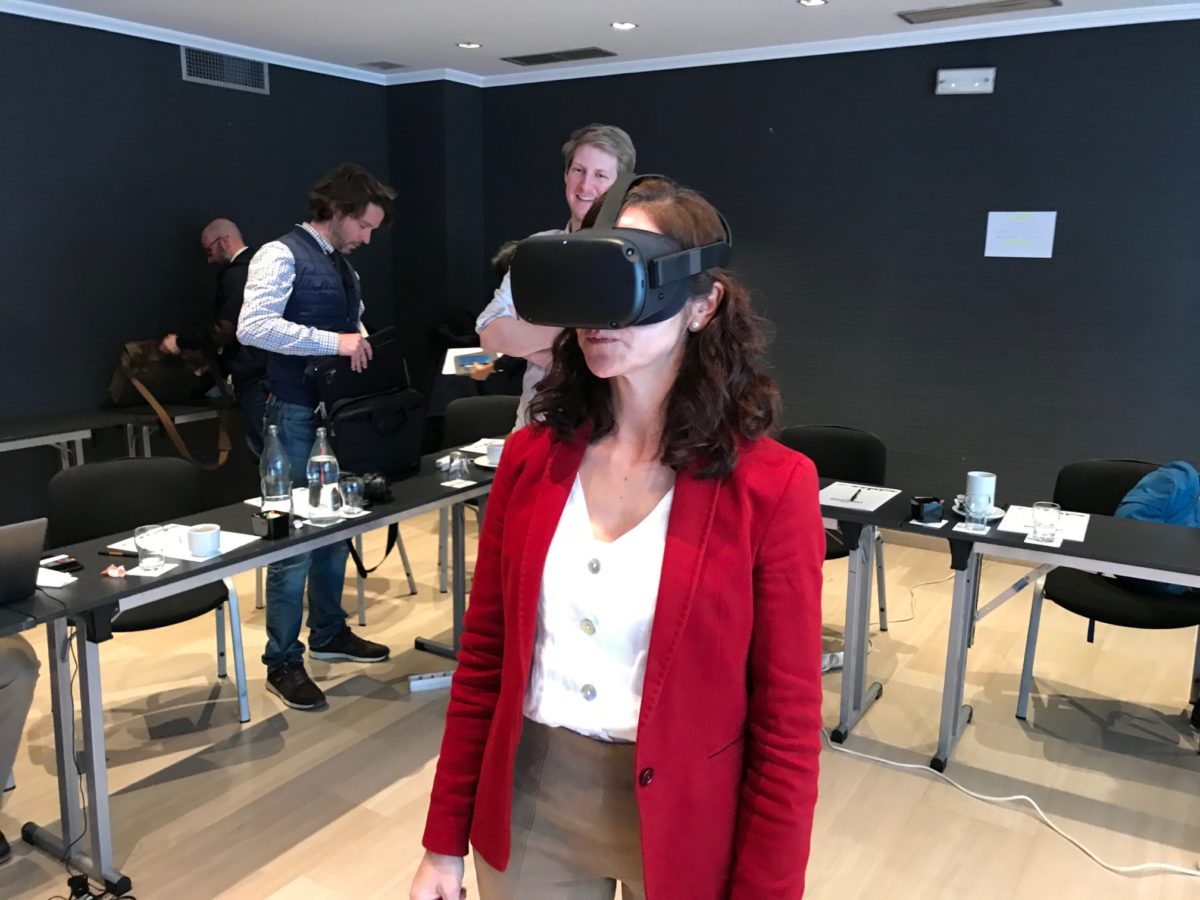

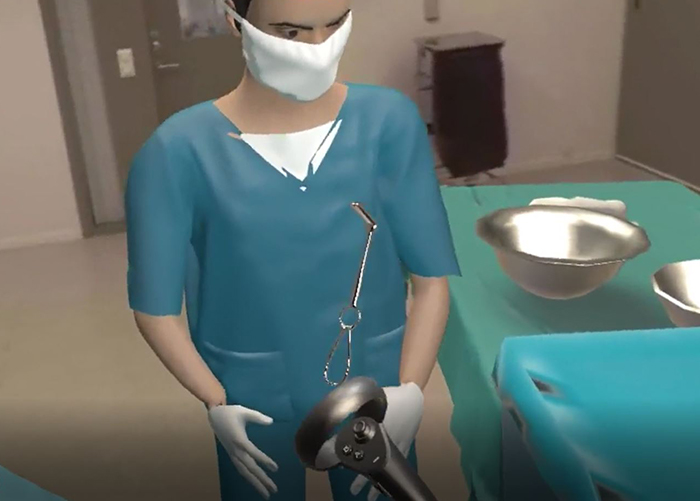
During nursing studies, there is rarely enough time to practice enough the needed skills to make students feel competent and confident. When entering an operating room, students often feel particularly nervous. As a working environment, it is strict and disciplined, that adds anxiety especially when the practicing time in busy teaching premises is limited due to, for example, spatial resources.
As a part of 360ViSi project, Turku University of Applied Sciences’ Turku Game Lab together with Nursing studies, have started to solve the problem by creating an education game placed in an operating room.
When playing, the student first sees a 360° demo video of surgery. In front of the student, one of the nurses is handing instruments to the surgeon according to his requests.
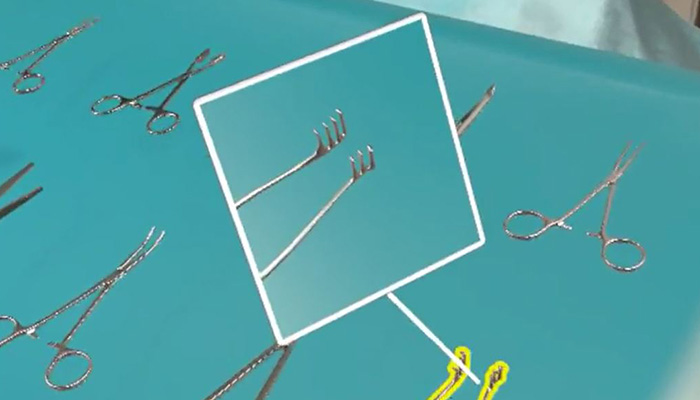
When starting the actual game, the student sees the surgeon and the selection of instruments. The task is to, according to the instructions, select and hand over the correct one. The key to the learning is the immediate feedback to the choices the student makes. In the end, the player sees the scores, the time used per instrument and the number of correct and wrong answers are shown.
Unlike during simulations or internships, the game gives the student a possibility to rehearse countless times. This leads to strengthened self-confidence and supporting his or her learning. Once the student gets to practice, he or she can concentrate on the aspects going beyond the basics.
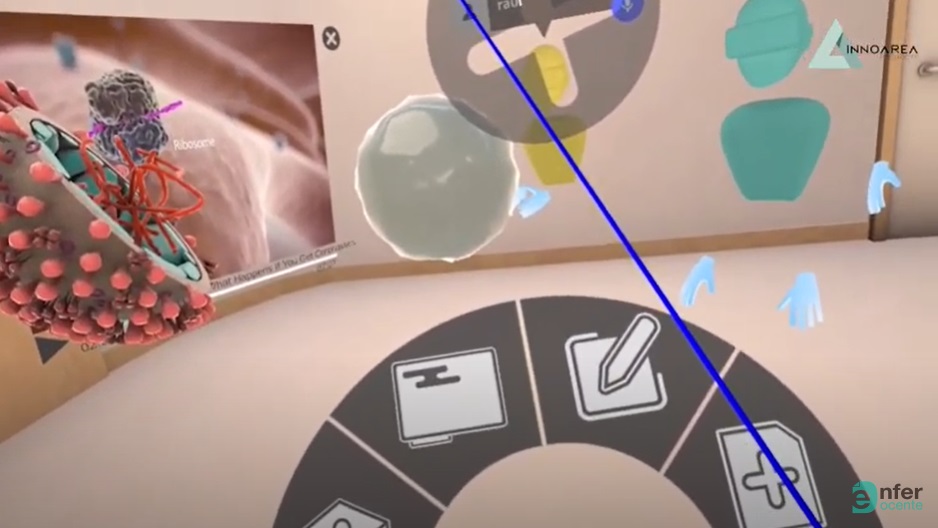
As a nurse and university senior lecturer, the Head of the E-learning and New Technologies department (SENT) at The Catholic University of Valencia “San Vicente Mártir” (UCV), Dr. David Fernández, has explained to his students, through virtual reality (VR), aspects concerning COVID-19.
Dr. Fernández has answered all the questions received by participants on his twitter account @enferdocente. He has visually explained the structure of the virus, how it spreads, and how it reproduces within our organism until it reaches the alveoli in the respiratory system.
“The problem with coronavirus is that it has a high affinity for the ACE-2 receptors that are found in the membranes of lung cells,” he says.
According to Dr. Fernández, VR offers specific benefits:
“It allows the use of three-dimensional objects so students can see, experience and understand in a graphic way what is being explained. Moreover, it facilitates independent learning and it ingrates different teaching methodologies, like escape rooms, through which students can play and learn at the same time.”
UCV is a partner university of the 360ViSi Erasmus+ project team and cooperates in this particular case with a Spanish immersive tech expert company, Innoarea, to increase the understanding of the COVID-19 and how the virus affects lung cells. Innoarea have organised a virtual environment, Innorooms, a collaborative VR tool, whereDr. Fernández has visually explained the structure of the virus, how it spreads, and how it reproduces within our organism until it reaches the alveoli in the respiratory system.
The collaborative VR-tool allows several people to meet in the same virtual space, and which is particularly oriented to teaching and education. It offers the possibility to share experiences and knowledge with others, regardless of where they are, that way, students and lecturers are able to communicate through avatars if it is not feasible to do it physically. The meeting was followed on streaming on YouTube.
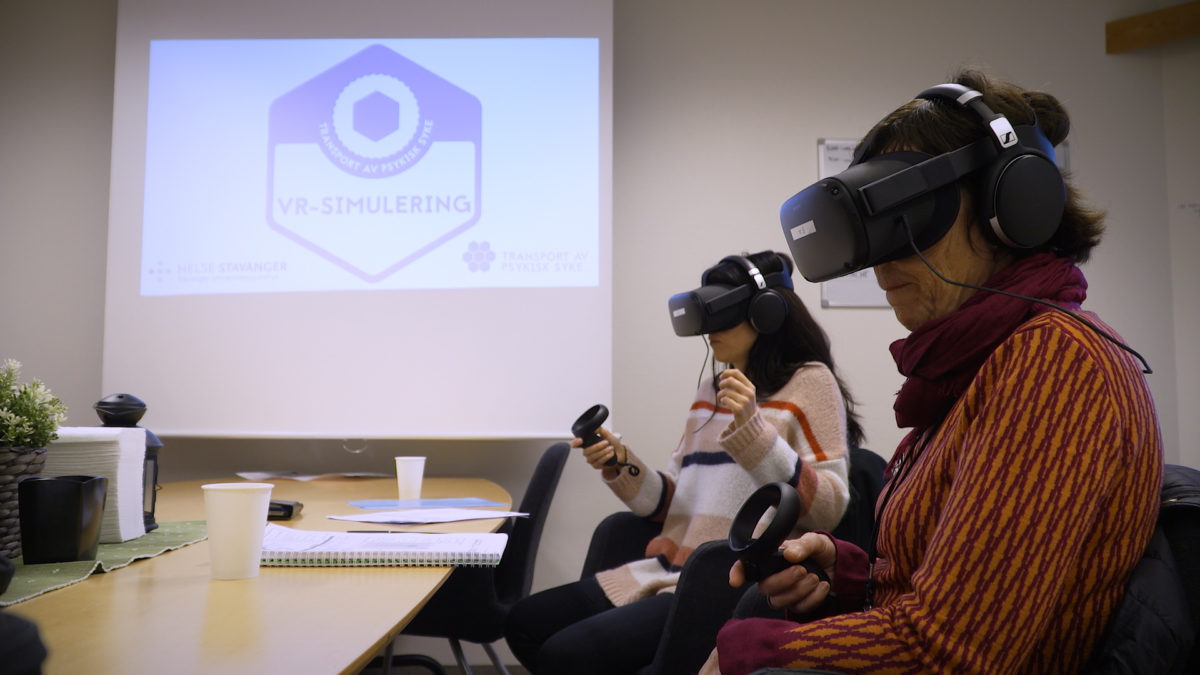
The 360ViSi team from the University of Stavanger were invited to test a VR- solution for medic training.